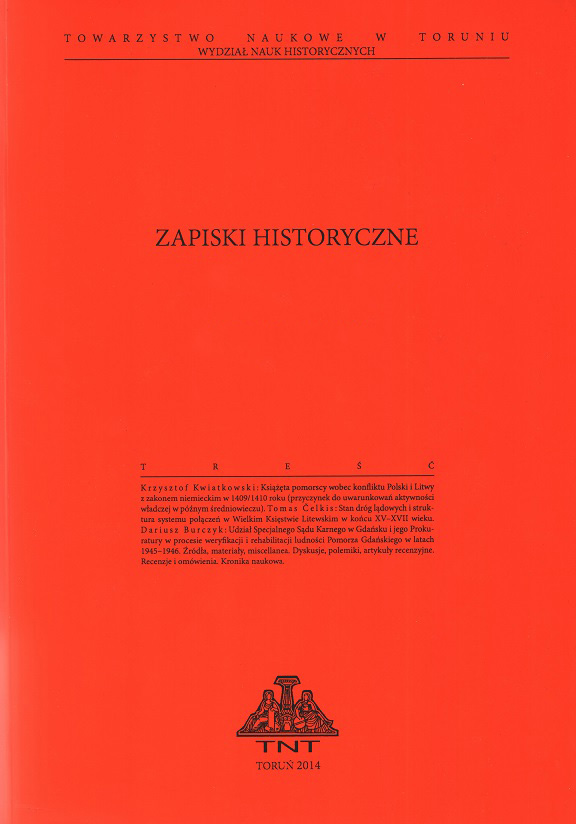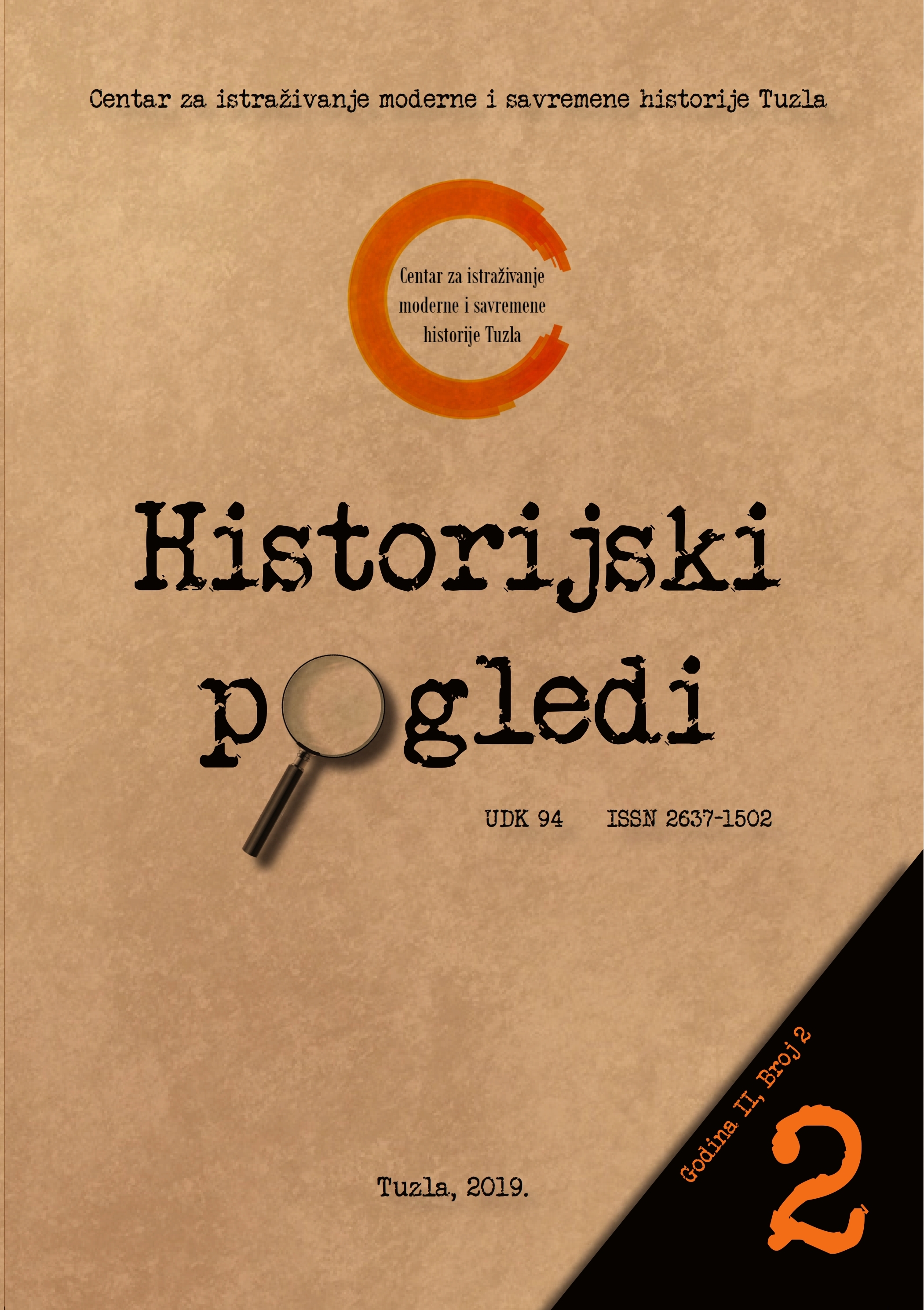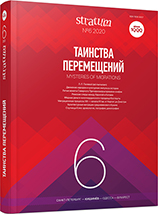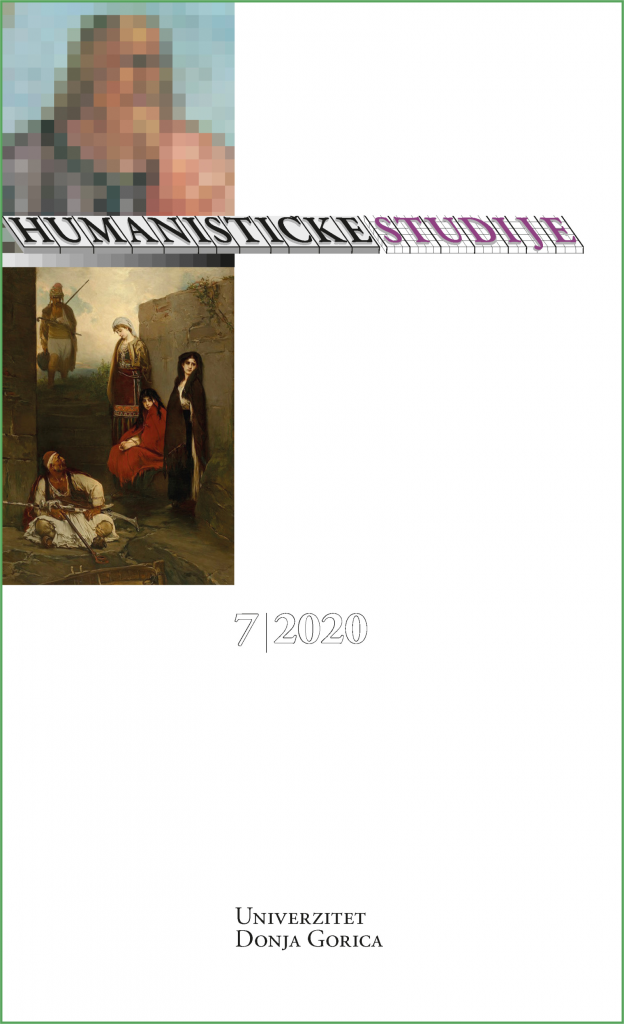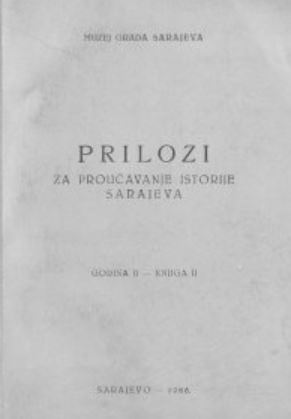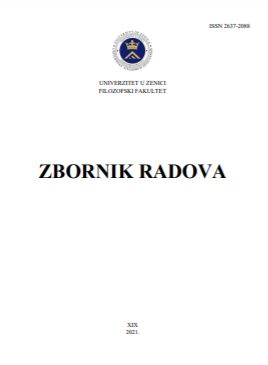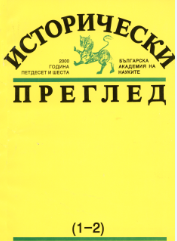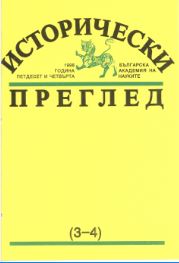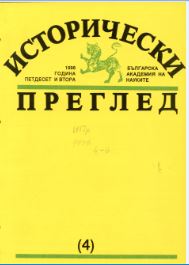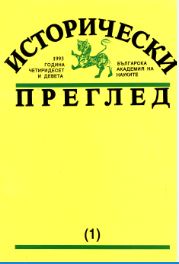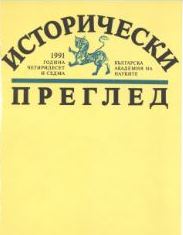Author(s): Todor Kruševac / Language(s): Croatian,Serbian
Issue: 4/1974
Dans cet essai, l’auteur cherche à présenter, se basant sur des matériaux d’archives et sur des matériaux contemporains, la fondation et l’activité du journal allemand »Bosnische Post«, premier journal politique en Bosnie et Herzégovine pendant le règne autrichien, qui paraissait sans interruption à Sarajevo presque 35 ans, de quoi plus de 22 ans comme quotidien (de 1. X. 1896. à 2. XI 1918). Outre cette longue parution, le journal »Bosnische Post« est important, parce qu’il ouvre une série de journaux politiques du régime, que les individus ou plusieurs d’entre eux fondaient au nom des principaux groupes religieux-nationaux. Donnant à ce propos une courte observation introductoire, l’auteur souligne que ces journaux souvent réciproquement en conflit, étaient dirigés d’une manière ou d’autre, par le régime lui-même, leur destinant en réalité un rôle double: de satisfaire, sous forme de petites consessions, même apparemment, la population inquiétée après le soulèvement herzégovinien (1882), et d’être, en même temps un signe visible de la normalisation des circonstances et du progrès réalisé sous le nouveau régime. La réalisation de l’idée sur la fondation du »Bosnische Post« était accélérée grâce à l’appui offert par quelques individus des hautes classes du régime. Avec des traits politiques-économiques accentués, le journal est fondé pour satisfaire les besoins des employés qui venaient de toutes parts et se multipliaient, ainsi que pour l’information du public de la Monarchie et en dehors sur la situation dans le pays occupé, et comme il s’engageait entièrement pour l’état nouveau, on soulignait souvent qu’il était l’organe officieux, bien qu’il ne le fût formellement jamais. Le journal est fondé et il se développait indépendamment des lecteurs du pays, qui s’en habituaient assez difficilement et peu à peu, étant donné qu’il était l’organe des immigrés et des cercles étrangers intéressés. Représentant absolument les intérêts de la nouvelle administration, dont il jouira l’appui sous tous les rapports, le journal »Bosnische Post«, dans la propagation de nouvelles idées, entièrement tourné vers le monde contemporain, propageait le besoin du changement plus rapide de ce milieu arriéré, et par ce moyen, contrairement aux idées conservatrices des habitants du pays, il agissait dans l’esprit des tendances de la nouvelle administration. Dans l’appui et l’accord avec le régime il faut absolument chercher un des principaux facteurs du fait que le journal a réussi de résister jusqu’à la fin de la période autrichienne. A propos de la fondation du journal »Bosnische Post«, l’auteur a brièvement exposé des données sur le médecin, dr Julije Makanac, propriétaire et éditeur du journal — principal protagoniste de l’entière entreprise, tandis qu’il a décrit l’acquisition de les concessions d’édition sur la base du matériel authentique d’archives. On a donné ensuite des données importantes non seulement sur le rédacteur responsable Eugen Ritter von Tôpffer, mais également sur tout ce qui avavit du rapport avec la parution du journal dans les premiers temps, et ensuite, lé programme du journal a été exposé plus amplement d’après l’article publié dans l’introduction du premier numéro de 1884. On a décrit les conditions dans lesquelles le journal paraissait au début, et on a signalé ensuite l’équipement technique, la rédaction appropriée au plan fixé, le contenu du journal, etc. Plus loin dans l’exposé, on voit que dr Makanec s’était retiré après deux ans et demi et il a vendu le journal au rédacteur responsable jusqu’à alors E. Tôpffer, qui allait tout de suite, à la fin de la même année 1886, dans la compagnie avec le collaborateur du journal Milena Mrazović acheter pour le journal une imprimerie possédant un équipement moderne, certainement avec les moyens donnés en cadeau à cette occasion, de la part de quelqu’un de spécial. Le journal se tenait sur un bon pied du point de vue matériel, et, il partait en avant irrésistiblement. Vers la moitié de 1889, Tôpffer est subitement tombe malade et il est mort, laissant le journal et l’imprimerie à Milena Mrazović, son associêee, devenue sa fiancée peu avant sa mort. La nouvelle propriétaire Milena Mrazović, dont la vie et le travail sont également décrits, dirigeait l’entreprise »Bosnische Post« par l’intermédiaire des personnes professionnelles pour les deux besognes principales (de journaliste et d’imprimerie). Quant au journal, elle a changé au cours de cette période plusieurs rédacteurs, engageant surtout des journalistes de la Monarchie (Alfons Kullich, Herman Tausk, Adolf Flachs, Adolf Landau, Herman Tausk de nouveau et finalement Franjo Selak). Sous la gérance de M. Mrazović, le journal paraissait aussi deux fois par semaine et avec le texte à peu près pareil à celui d’autrefois, le contenu du journal est toujours varié, le cercle des collaborateurs s’élargit. Au pomt de vue des idées, le journal, comme autrefois, représente les tendances du régime, ce qui, naturellement, se compensait par les privilèges dont le journal jouissait sous des rapports variés. L’entreprise est rentable, elle offre à la propriétaire un profit considérable, ce qui s’est manifesté publiquement lorsque l’entreprise a déménagé complètement dans ses propres bâtiments nouvellement construits. Dans la suite de l’exposé on a raconté comment la propriétaire M. Mrazović a perdu la faveur du représentant du régime, de sorte qu’elle ne pouvait que vendre le journal et l’imprimerie, au début du mois de mai 1896, au conseiller commercial de Vienne J. B. Schmard, qui a transformé le journal au quotidien et avec l’assistance du nombre nécessaire de rédacteurs et de journalistes, il le gérait jusqu’à sa mort. Ses héritiers ont vendu toute l’entreprise vers le milieu de l’an 1912, à la Banque nationale privilégiée pour la Bosnie et Herzégovine, et elle était gérée depuis comme partie de la banque, comme société par actions indépendante. Pendant toutes les 35 années de sa parution, le journal »Bosnische Post« a acquiert la renommée d’un journal politique-économique distingué, qui ouvrait le pays occupé au monde étranger et éveillait leur intérêt pour lui sous divers rapports. Le journal contient un véritable trésor de données des divers domaines de la vie sociale, comme aucun journal bosniaque de cette époque. A la fin de l’exposé, on a donné une brève remarque sur la parution du jornal »Bosanska pošta«, pendant deux ans, (1896-1898), publié en caractères latins, en serbocroate, qui sera compris et traité dans le public comme variation croate du journal allemand, portant le même nom.
More...
